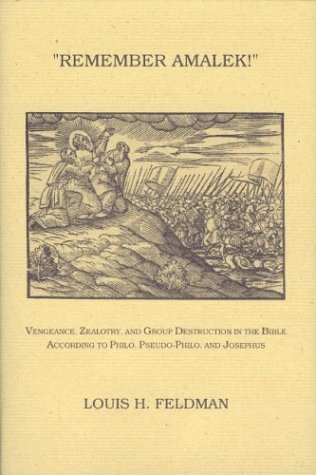Monographs of the Hebrew Union College
1 primary work
Book 31
The divine commandment to exterminate all the Amalekites - men, women, children, and even animals who have no free will - is in contemporary terms no less than genocide. Louis Feldman helps us to understand how three ancient Jewish commentators on the Bible - Philo, Pseudo-Philo, and Josephus - wrestled with the issues involved in this divine command, especially its provisions that an entire people must be punished for all time for the misdeeds of their ancestors. Feldman broadens the issue by examining several biblical parallels where God commands the destruction of whole groups of people - namely, in the Great Flood, Sodom and Gomorrah, the plague of the first-born Egyptians, and the seven Canaanite nations. In addition, he examines several instances of mass destruction of entire groups of people where there was no specific divine commandment - the annihilation of the nations of Sihon and Og, the complete destruction of the inhabitants of Jericho, and the extermination of the priests of Nob. Finally, he considers the issue of the justification of God's reward to Phineas for his zealotry in bypassing the law when he put to death a Jew and a non-Jew for their immorality.
All of these biblical passages raise difficult questions, to which, Feldman demonstrates, there are no simple answers.
All of these biblical passages raise difficult questions, to which, Feldman demonstrates, there are no simple answers.
